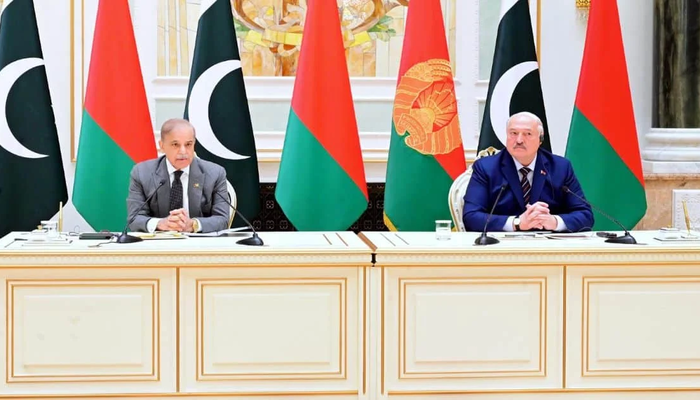Pakistan’s liquefied natural gas (LNG) agreement with Azerbaijan’s SOCAR which expired in June 2024, will continue under its original terms, Petroleum Minister Musadik Malik confirmed.
Despite Pakistan’s current energy surplus, the government, according to Malik, will procure additional LNG through spot cargoes if needed at any point this year.
He also mentioned that the agreement could be extended if needed, ensuring a reliable fallback for any unexpected shortages.
Minister Musadik Malik stated that Pakistan’s domestic gas production is approximately 3,200 million cubic feet per day (MMCFD), with about 200 MMCFD used in extraction. From the remaining 3,000 MMCFD, 1,200-1,300 MMCFD is designated for the fertilizer and power sectors, while 1,700-1,800 MMCFD is distributed to consumers via gas companies’ networks.
Russian PM recommends energy minister for deputy PM in cabinet reshuffle
The agreement between Pakistan and Azerbaijan, signed during the Pakistan Democratic Movement (PDM) government’s tenure, stipulated the import of at least one LNG cargo per month.
Notably, the deal avoided the “take-or-pay” clause, which requires a minimum purchase regardless of market conditions, offering Pakistan greater flexibility. However, due to various factors, Pakistan imported only a limited number of cargoes from Azerbaijan.
In addition to its arrangement with Azerbaijan, Pakistan maintains long-standing LNG contracts with Qatar, based on the take-or-pay principle, mandating continuous imports from Doha.

Looking forward, Azerbaijan aims to establish a more regular import schedule with Pakistan, targeting a monthly cargo. Azerbaijan has also pledged competitive pricing compared to international rates.
The Ministry of Petroleum, in collaboration with the Ministry of Maritime Affairs, is working to reduce high taxes and port charges on imported LNG to make electricity more affordable. Presently, imported LNG, priced at $11 per million British thermal units (mmbtu) internationally, costs $15 per mmbtu in Pakistan after taxes and port fees.
Turkey restarted energy exploration in east Mediterranean
The port charges, which are among the highest in the region, could potentially be reduced. This reduction might lower LNG prices from the current Rs 3,600 per mmbtu to Rs 2,800 per mmbtu.
The Ministry of Petroleum highlights that the price disparity between imported and locally produced gas is driving the need for reform. Locally produced gas is priced at Rs1,200 per unit, while the average cost of gas under the new pricing formula could be around Rs1,800.



